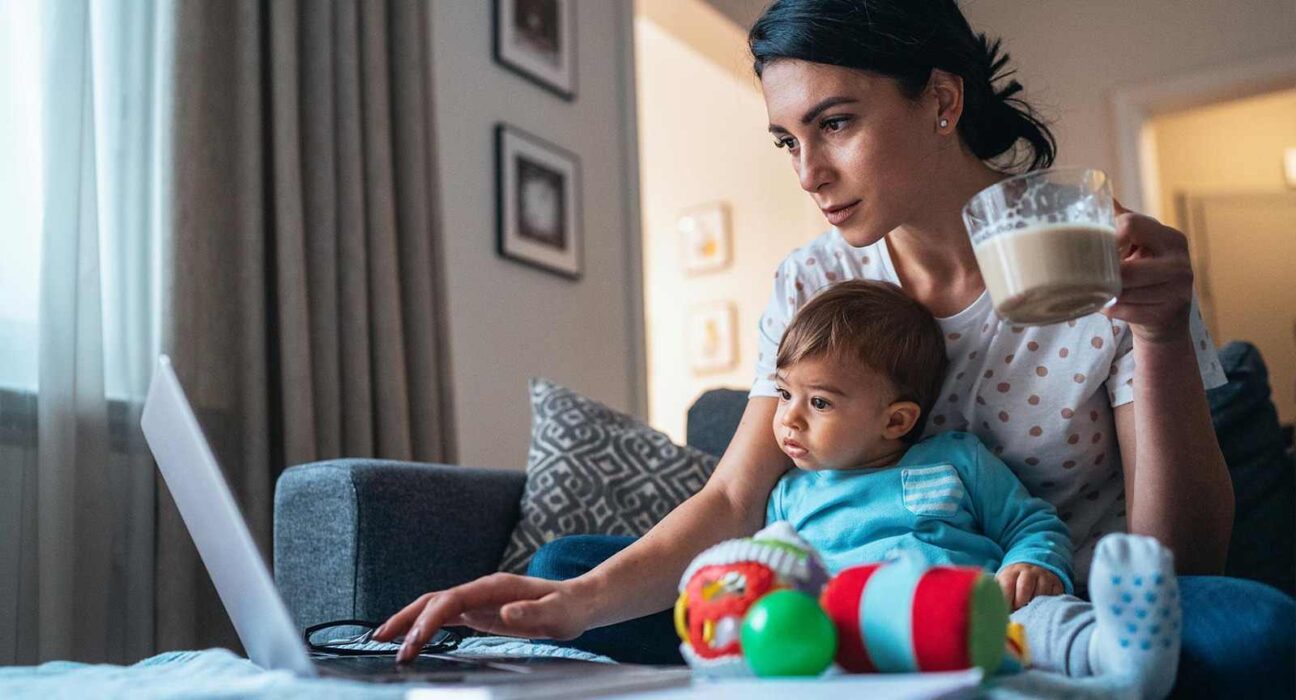A Day in the Life of a Stay at Home Mum
It was a typical Monday morning when Jane’s alarm went off at 6 AM. She quietly slipped out of bed, careful not to wake her sleeping husband, and made her way to the kitchen. As the coffee brewed, she mentally ran through the day’s schedule: breakfast for the kids, school drop-offs, grocery shopping, laundry, a playdate for her youngest, and somehow fitting in time for her freelance work. Jane had chosen to be a stay at home mum, a decision driven by her desire to be present for her children’s early years. Despite the challenges, she found joy and fulfillment in the chaos of daily life, knowing that her role was essential in shaping her family’s future.
The Role of Stay-at-Home Mums
Stay-at-home mums (SAHMs) play a critical role in their families and society. They provide constant care, emotional support, and a stable environment for their children. According to a report by the Pew Research Center, the number of stay-at-home mums in the United States increased to 29% in 2012, up from 23% in 1999. This shift reflects changing attitudes towards family life and the value placed on parental involvement during a child’s formative years.
The Economic Value of Stay-at-Home Mums
While stay-at-home mums may not earn a salary, their contributions have significant economic value. A study by Salary.com estimated that if stay-at-home mums were compensated for their work, they would earn an average annual salary of $178,201 in 2019. This figure accounts for the various roles they undertake, including childcare, housekeeping, cooking, and more. The financial savings on daycare and other services also underscore the economic impact of their work.
Balancing Household Responsibilities
Stay-at-home mums often juggle multiple responsibilities, from managing the household to supporting their children’s education and extracurricular activities. The American Time Use Survey reported that stay-at-home mums spend an average of 18 hours per week on childcare and 14 hours on household chores. These tasks require exceptional organizational skills, time management, and dedication.
Personal Fulfillment and Challenges
For many stay-at-home mums, the decision to focus on their family comes with both rewards and challenges. The opportunity to witness their children’s milestones and provide a nurturing environment is immensely fulfilling. However, the role can also be isolating and exhausting. According to a survey by Motherly, 74% of stay-at-home mums reported experiencing burnout, highlighting the need for self-care and community support.
The Importance of Self-Care
Maintaining personal well-being is crucial for stay-at-home mums. Regular self-care practices, such as exercise, hobbies, and social connections, help prevent burnout and promote mental health. The Mayo Clinic emphasizes that self-care is not selfish but necessary for overall health and effectiveness as a caregiver.
Community and Support Networks
Building a strong support network is essential for stay-at-home mums. Connecting with other parents through playgroups, online forums, and local community events provides valuable social interaction and shared experiences. Organizations like MOPS (Mothers of Preschoolers) offer resources, meetings, and a sense of community for stay-at-home mums.
The Shift to Remote Work and Flexible Opportunities
The rise of remote work and flexible job opportunities has opened new doors for stay-at-home mums seeking to balance family life with professional aspirations. According to a report by FlexJobs, remote work increased by 159% between 2005 and 2017, and the trend has accelerated due to the COVID-19 pandemic. Many stay-at-home mums have leveraged their skills in freelance writing, virtual assistance, and online tutoring to contribute financially while remaining present for their families.
Societal Perceptions and Value
Society’s perception of stay-at-home mums has evolved over the years, recognizing the importance and value of their role. However, stereotypes and misconceptions still exist. It’s essential to challenge these views and appreciate the diverse reasons behind the decision to be a stay-at-home mum. Research by the American Psychological Association found that maternal employment status does not significantly impact children’s emotional well-being, underscoring the importance of quality parenting regardless of work choices.
Conclusion
As Jane tucked her children into bed that evening, she reflected on the day’s events. Despite the exhaustion, she felt a deep sense of satisfaction knowing she had been there for her children’s laughter, tears, and everything in between. Being a stay-at-home mum is a journey filled with challenges and rewards, requiring resilience, dedication, and love. The economic value, personal fulfillment, and societal contributions of stay-at-home mums are significant, deserving recognition and appreciation. By supporting and valuing these mums, we acknowledge the vital role they play in nurturing the next generation and building strong, healthy families.














